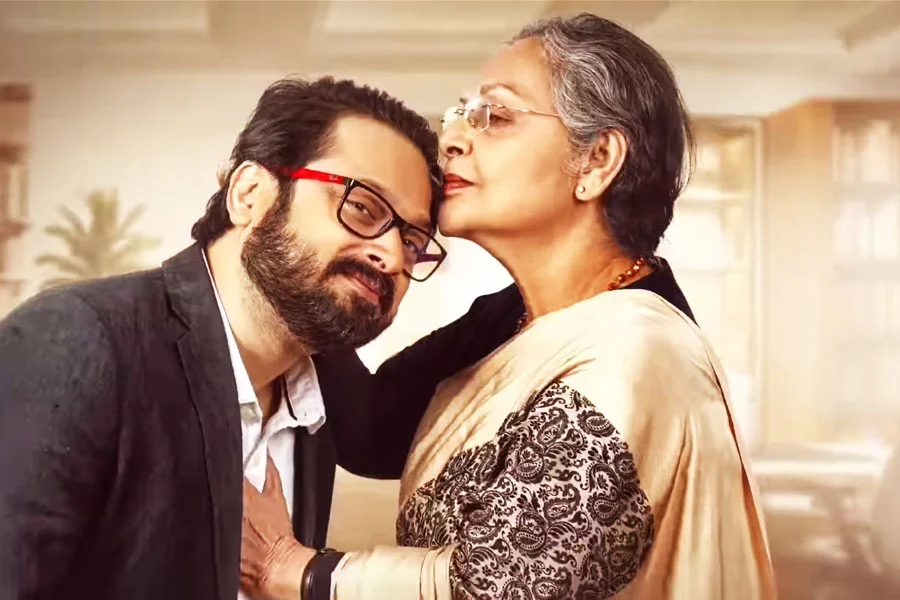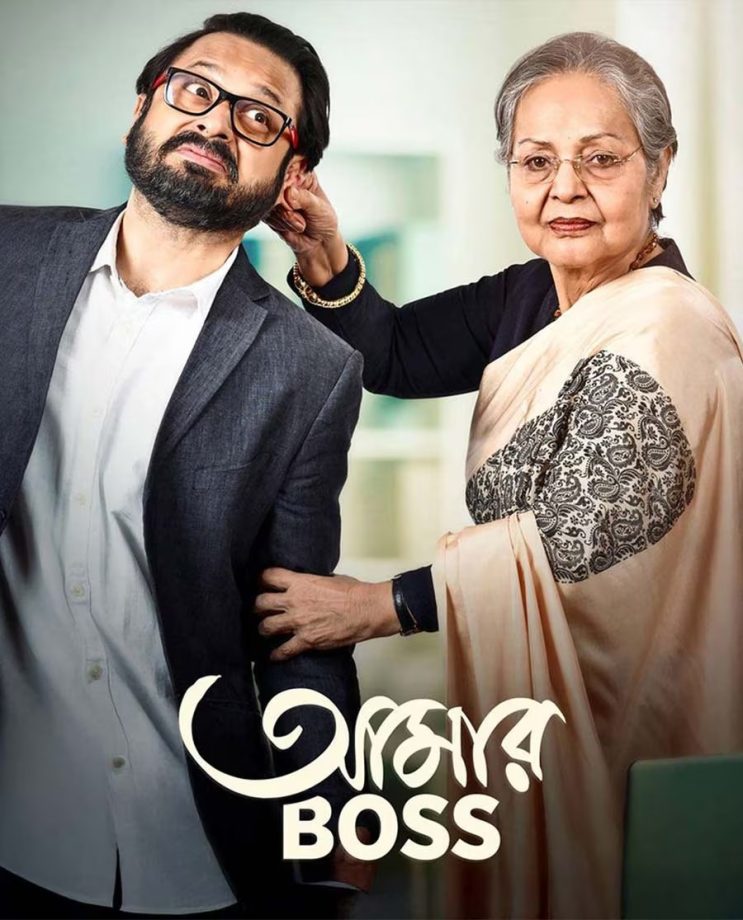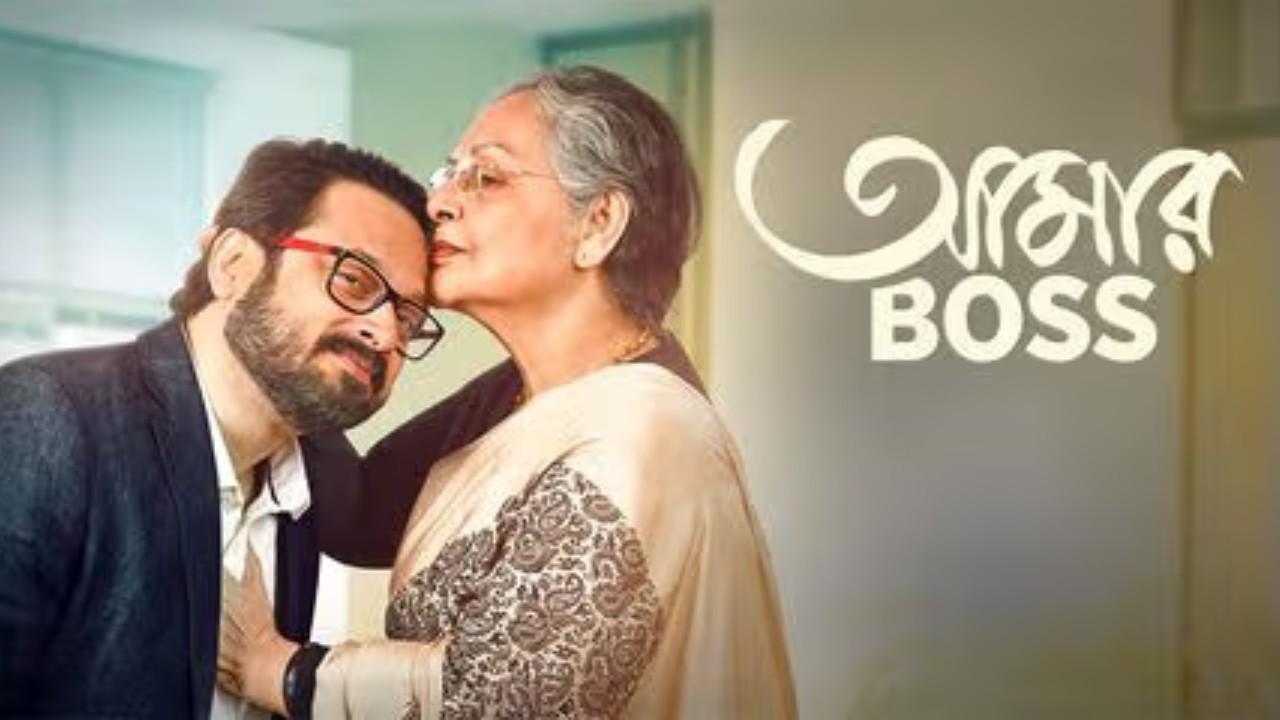You start to count on your days with your parents once you hit that juncture. You begin to notice the greys, the childlike reverts, and the hissy fits. So much so that you end up screaming and scratching your own head; how do you escalate this situation alone? What did you do to deserve this? Why are parents no longer your parents now, but have they become your grown-up children? Shifting from toddler-like conduct to becoming adolescent, you still ought to hold your patience out of love for your life sources.
Aamar Boss feels personal. Directed by Shiboprosad Mukherjee and Nandita Roy, the film muses on the idea of the unsung tied-down bond of parents and children. How the bond tangles you at every instance of your life, that you feel you are left behind. The world is ahead, the cosmos is ahead, and you are trying to snake away the zig-zags of it. It feels almost impossible to outdistance the responsibilities.

But, readers, at one point in life, you should. And not let nostalgia take over. A popular line from Cinema Paradiso, “Don’t think about us. Don’t look back, don’t write. Don’t give into nostalgia. Forget about us.” The more you try to dig, the more you lead yourself into the ‘Chakravyuh.’
Yet, duties await you. They will always. You do it and forget it. Else, life shall crumble you down.
Aamar Boss traces me back to Piku, where we see a father-daughter relationship blooming inward and outward. In Aamar Boss, we see a mother-son relationship heightening emotions that go mostly unseen. And who gets you? Rakhee Gulzar. She makes it poignant, not broken. She aids the film. She becomes a guide, just like mothers are. She does it for her son. For she yearns, she continues to yearn for his son to be with her. She succeeds. You understand the equation more as you watch the film.
Rakhee Gulzar becomes the ultimate ‘messiah.’ She becomes the magic wand, letting the ‘corporate majdoors’ breathe. Individuals who are squashed in this quiet entanglement. She liberates every one of us from the entanglement. She enclasps interdependency and nullifies co-dependency.

As we watch Aamar Boss, we learn. We learn to let go. We learn detachment. But we also learn to love. We learn how to take responsibilities as sports and not as baggage. It teaches ‘when life gives you lemons, make lemonade,’ in its truest sense.
Shiboprosad Mukherjee, who swiped smoothly between his chairs, made the film a masterclass on emotions again. He perfectly mirrors the sudoku of life in the film. Completely shaken by the idea of his mother’s attempt to initiate a daycare inside a ‘publishing company,’ he perfectly whirls in between the contradictions. You see him; you feel it right in your spine. We see him trying to keep all the strings attached and his viscera losing it almost at a breakdown, but he bounces back again.
Aamar Boss adds layers to every character, featuring Gourab Chatterjee, Sauraseni Maitra, Sabitri Chatterjee, Rajat Gangopadhyay and others. Every dramatis personae you visit closely, you return with an individual story and perception. The film brings details to every nuance. The music hits your emotions up and down.
Drawing close, in the end, the film tells you, “You’ve got this.”
IWMBuzz rates it 4.5 stars.

